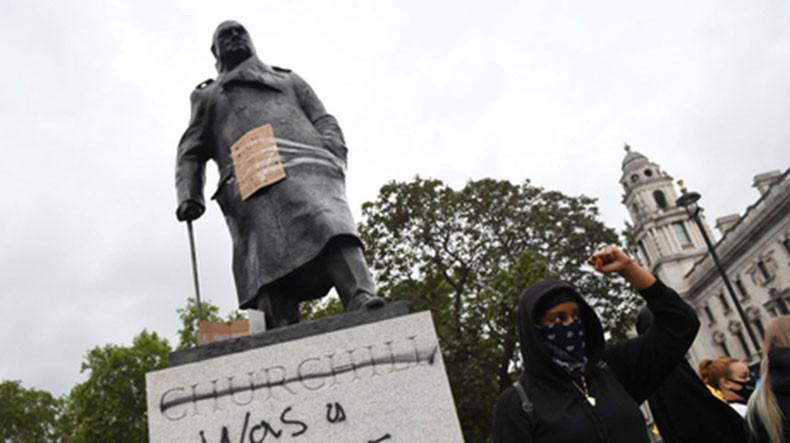
Vandals targeting public monuments in U.K. now face harsh penalties
Anyone caught damaging a memorial in the U.K. could now face harsh penalties of up to 10 years in prison, Artnet News reports.
Previously, sentencing was constrained in cases where the cost of the damage is less than £5,000 ($6,000). Offenders would be tried at a Magistrates Court and could receive a maximum imprisonment of three months and a possible fine of up to £2,500.
Without this new limitation, however, they can be tried in the Crown Court and receive the maximum of 10 years imprisonment that was previously reserved for damages over £5,000.
This amendment, implemented on June 28, is part of a broader criminal law that is focused on giving police more power to manage protests. The Black Lives Matter protests in the summer of 2020 were explicitly cited in an outline of the controversial law, released by the Criminal Law Policy Unit.
“There’s now a prospect of greater penalties being imposed if those in power don’t agree with the message being imparted by those doing the damage, thereby potentially impacting people’s right to express themselves freely,” Rudy Capildeo, a specialist in art law at Charles Russell Speechlys, told Artnet News. “A political judgement appears to be being placed on the content of the graffiti rather than the act of vandalism itself.”
Not all damage to memorials has been in the context of a demonstration. In August 2021, a war memorial in Bermondsey and Rotherhithe was set on fire with no clear motivation.
The Criminal Law Policy Unit’s outline cites historical data showing that, on average, 12 memorials a year were vandalized between 2007 and 2017. However, according to Capildeo, whose calculations are based on the number of memorials currently in the Imperial War Museum’s Register, this only accounts for about .012 percent of the U.K.’s memorials.
Newsfeed
Videos






























